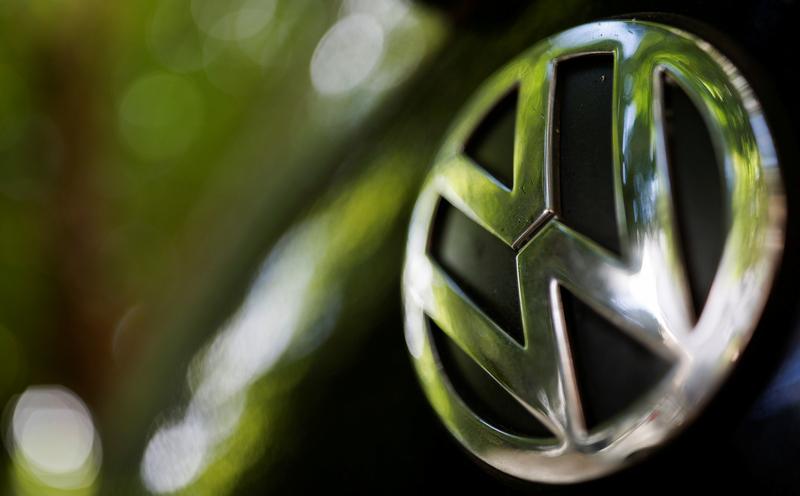FRANKFURT (Reuters) – Volkswagen plans to secure battery cell supply and expand the infrastructure for charging electric vehicles in Europe as it accelerates efforts to overtake Tesla and make so-called e-mobility cheaper.
The world’s No.2 carmaker, which is in the midst of a major shift towards battery-powered cars, said on Monday it plans to have six battery cell production plants operating in Europe by 2030, which it will build alone or with partners.
“E-mobility has become core business for us. We are now systematically integrating additional stages in the value chain,” Chief Executive Herbert Diess told VW’s Power Day.
The plants will have a production capacity of 240 gigawatt hours a year, VW said.
“We secure a long-term pole position in the race for the best battery and best customer experience in the age of zero emission mobility,” Diess added.
The group also said it would enter partnerships with oil major BP and top European utilities Enel and Iberdrola to expand electric vehicle charging.
A lack of infrastructure is still seen as a major hurdle to the mass adoption of battery-powered cars.
Related Coverage
Volkswagen said it plans to have a new unified prismatic cell design from 2023, which will support cost cuts generated by the raised level of in-house cell production.
“On average, we will drive down the cost of battery systems to significantly below 100 euros ($119) per kilowatt hour,” Volkswagen management board member Thomas Schmall said.
“This will finally make e-mobility affordable and the dominant drive technology.”
The cost of battery cells used for electric vehicles has fallen to an average of $110 per kilowatt hour (kWh), Benchmark Mineral Intelligence (BMI) said in December.
($1 = 0.8386 euros)
Source: Read Full Article
